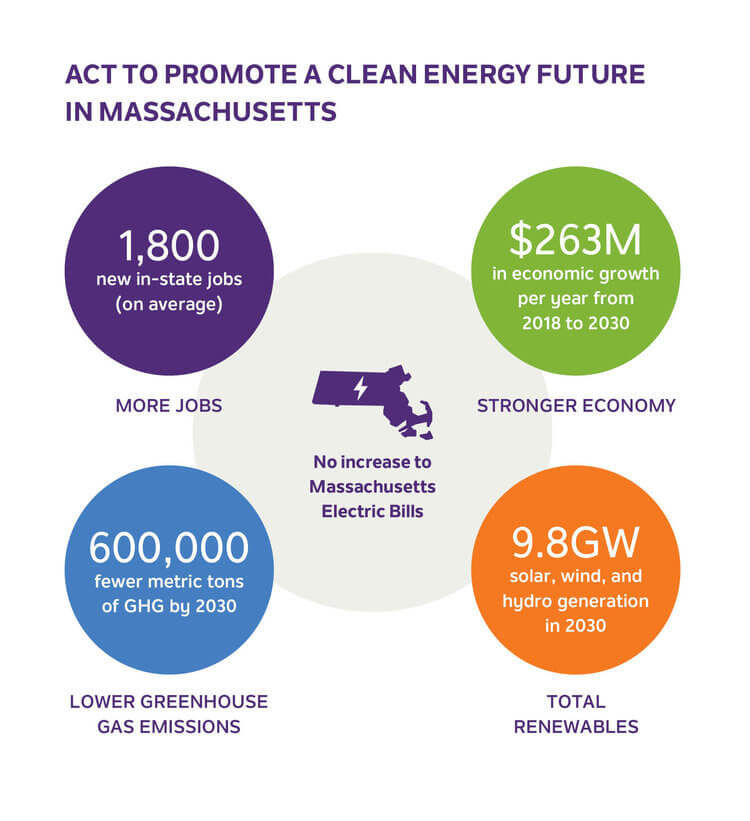
The full report, including detailed methodology, can be found on AEC’s website. AEC’s research was funded by The Barr Foundation.
A recent report released by the Applied Economics Clinic (AEC) in conjunction with Sustainable Energy Advantage found substantial economic and environmental benefits for Massachusetts, and no new costs for ratepayers, if the legislature approves policies included in a bill passed by the State Senate.
If adopted together, the four key policies, including an accelerated increase in the Renewable Portfolio Standard (RPS), increased targets for off-shore wind generation and battery storage, and a removal of the solar net metering cap, would reduce greenhouse gas emissions by 600,000 metric tons and have the following impacts in Massachusetts:
- Create an average of 1800 new jobs;
- Generate $3.4 billion in economic opportunity over the next twelve years;
- Lead to 9,800 MW of total wind, solar, and hydro generation; yet
- Result in no increase to Massachusetts electric bills.
“By building on the Commonwealth’s current approach to clean energy development, these policies would bring new jobs and GDP growth to Massachusetts, and help the state make progress toward its climate goals,” said Dr. Elizabeth A. Stanton, founder and director of AEC and the report’s lead author. “Notably, we found that, if these policies are adopted together, electric rates for Massachusetts consumers actually decrease by 2030.”
The report also finds that emissions reductions from these electric sector policies are not enough on their own to comply with the state’s Global Warming Solutions Act; more action will be necessary in other sectors such as transportation.
The Senate’s Committee on Global Warming & Climate Change requested a study of the impacts of the major electric sector provisions in the pending “Act to Promote a Clean Energy Future.” Those policies included:
- Renewable Portfolio Standard (RPS): Accelerate the increase in the Massachusetts RPS from 1 to 3 percent per year, requiring utilities and competitive suppliers to increase the amount of renewable resources in the electricity they sell
- Offshore Wind: Build 5,000 MW by 2035
- Battery Storage: Reach an in-state battery storage goal of 1,766 MW by 2025
- Lift Net Metering Cap: Remove the cap on “net metering” (selling energy back onto the grid) from small solar installations
AEC modeled the New England electric sector and Massachusetts economy to analyze the effects of these policies against a business-as-usual scenario to forecast what would occur without these policy changes.
Filed Under: News, Offshore wind, Policy




